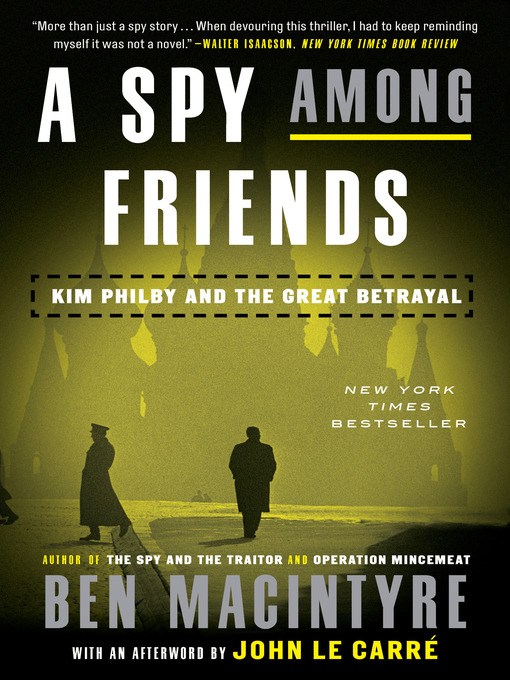


Readers (like me) who loved his previous book, “Double Cross,” about Britain’s amazing wartime deception of the Nazis, will find this volume something of an antidote. He is deep inside the world of MI6, understanding its class-bound rituals and loyalties. This is the latest of a series of Macintyre’s superb reconstructions of classic tales about British intelligence.

It’s a measure of Philby’s capacity for deception that, to the end, some Russians wondered if he was, in fact, a triple agent all along, loyal in the deepest chamber of his heart to queen and country. One of his Soviet handlers, Yuri Modin, wrote that he was “breathtaking” in publicly denying a 1955 parliamentary leak that he was a KGB spy. He was arguably the most gifted liar in intelligence history, a man who, despite what sounds like almost constant drunkenness, never really cracked, even as the evidence against him became overwhelming. Philby emerges from “A Spy Among Friends” as a supremely perverse antihero, remarkable for his sheer guts and tenacity in concealing for more than 30 years his treason against his country and class. In an age when every puzzle is thought to have its solution, Philby’s inner motivation remains unfathomable. But Ben Macintyre manages to retell it in a way that makes Philby’s destructive genius fresh and horridly fascinating - and to me, at least, ultimately inexplicable. David Ignatius is a Washington Post columnist and the author of “ The Director,” the most recent of his nine spy novels.īy now, the story of British double agent Harold “Kim” Philby may be the most familiar spy yarn ever, fodder for whole libraries of histories, personal memoirs and novels.


 0 kommentar(er)
0 kommentar(er)
